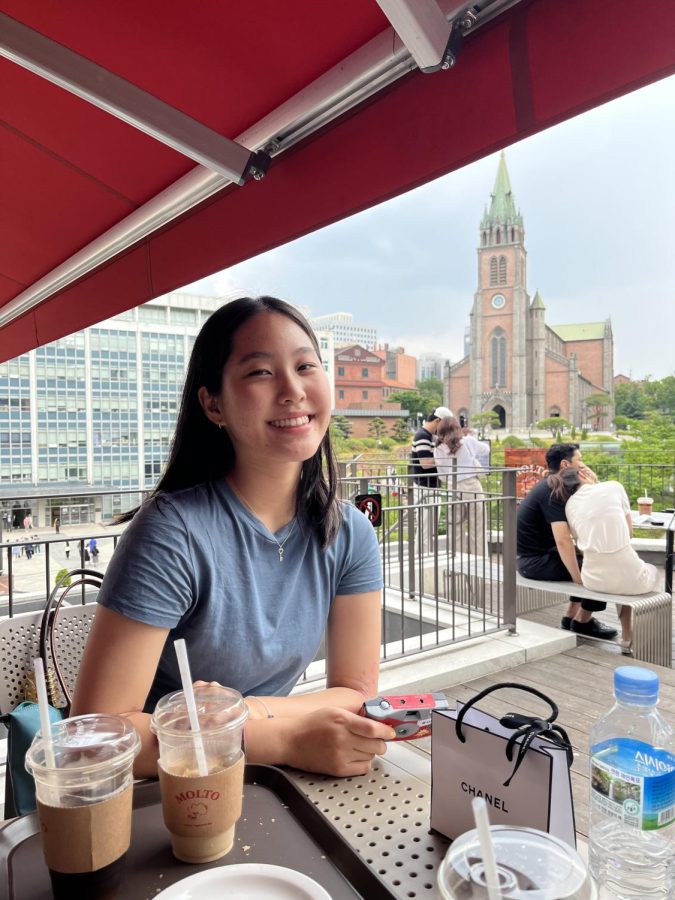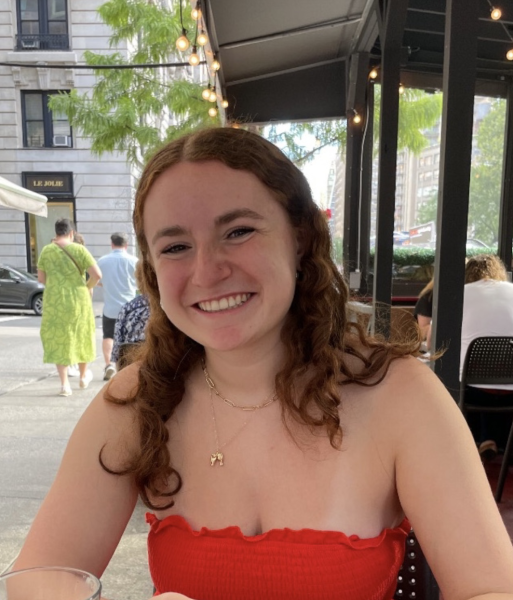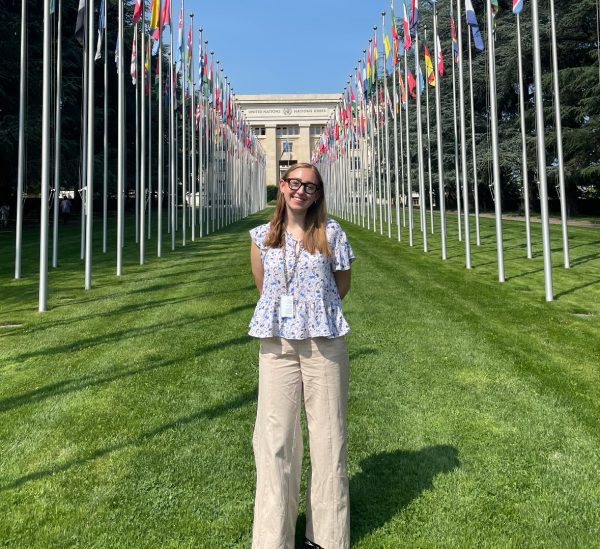Jaeryung Park: Adapting to Colgate Life as an International Student
First-year international student Jaeryung Park is used to unfamiliar places, having lived in South Korea, Texas, Florida and Hong Kong. Although her time in the U.S. might give her a bit of a leg up on her fellow international students in transitioning to life at Colgate, Park still feels the challenges of living and learning far away from her home in South Korea.
Like all first-year students, Park, who arrived in Hamilton on Aug. 17, is getting used to life at Colgate, from dorm life to navigating campus. Park is used to the American education system, and she said it was one of the reasons she decided to go to college outside of South Korea.
“The Western, American [education] system felt more comfortable for me,” Park said. “Just [exploring] my creative field, what I want to study and all that was more appealing.”
Most of Park’s secondary education took place in Asia, but she attended an international school in Hong Kong for high school where they spoke English and took courses similar to those taken by American students, including Advanced Placement (AP) courses.
Despite her familiarity with the American style of education, Park still has to get through the rather intense process of immigration and becoming an international student.
“It’s a lot [more] paperwork than other people may expect,” Park said. “We also had to take a TOEFL.”
The TOEFL test is a standardized test meant to measure a non-native English speaker’s proficiency in English, according to the Educational Testing Service.
Luckily for international students, Colgate provides resources to help with visas and I-20s, Park explained. She said the International Student Orientation — run by the Office of International Student Services (OISS) — also covers information important to the students once they are in the U.S., like getting a social security number and work-study.
“And then [the orientation provides] resources for international students, specifically if they’re missing home or if they want a sense of community, they told us there’s an office where [the international students] can hang out,” Park said.
For Park, her family is a 13-hour flight away, so communication is difficult. Because she doesn’t have anybody to regularly talk to in Korean at Colgate, she is worried that she could get rusty by the time she gets back to South Korea.
“[I’m nervous about] forgetting a bit about my native tongue when we need language, since there’s not a lot of people to speak with,” Park admitted.
Park feels she is too early into her time at Colgate to have any advice for future international students, but she does think that international students should try to branch out.
“I would say just be open to meeting a wide range of international students,” she said.
Park enjoys the outdoors, watching sunsets, hanging out with friends and watching Netflix. Though she misses the food from South Korea, she wouldn’t mind bringing Chick-Fil-A back with her.
In spite of the differences in experience international students might have on campus, Park says even international students have to deal with toothpaste jokes that come with attending Colgate, too.















